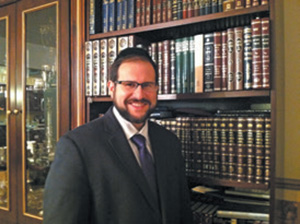
Sometimes it’s the simplest events that leave the greatest impressions. Several summers ago, a camper crossed the line and needed to be disciplined. I was the camper’s division head, but I felt the situation warranted the intervention of someone higher than me in the hierarchy of camp’s administration. I brought the camper to an administrator and recounted the situation.
After the administrator dealt with the situation and the camper walked away, I told the administrator that I was somewhat surprised by his reaction, and the way he handled the situation. I thought he had been too soft.
The administrator looked at me and said, “Dani, I do the best I can with the brain the Aibishter gave me!”
I was very taken by those simple words. They left no room for debate or discussion. He essentially admitted that it may or may not have been the optimal response, but he had done the best he could.
Had he started rationalizing and proving to me why that was the correct response, I may likely have argued the point. But when he put it in such humble terms, how could I argue? In fact, how could anyone argue with someone honestly saying that he had done his best?
I have thought and repeated those words on many occasions and it has given me chizuk.
More than once a mother has consulted with me that she was struggling with feelings of inadequacy as a parent. She felt guilty about everything she did and was always second guessing herself and feeling miserable about it. I recounted this story and told her that Hashem demands nothing more of us than that we do our best. Undoubtedly, we must always try to improve and grow. However, if we are generally doing so then we can do no more than trying our best in the situation we find ourselves in.
I feel that this is an important perspective to bear in mind during these weeks of Elul and Tishrei. Often, we feel dejected with ourselves during these weeks. We look at another year that has passed and wonder if we will still be exactly where we are next year as well.
We must always remember that our goal is growth, not perfection! As long as we can honestly state that we are doing the best we can with what the Aibishter has given us, we can feel confident that we are doing our part. There is no doubt that we can, and must, always strive higher. However, we have to appreciate our accomplishments and efforts, as the Aibishter does.
We have a habit of unwittingly downplaying our accomplishments and growth. It is in fact a favorite tactic of our evil inclination, which wants to bring us to despair so that we give up before we even start.
On the one hand, we must never stop aspiring for growth. On the other hand, we must always be realistic about our current spiritual and emotional level and be realistic about what we can expect of ourselves. In that way we will value and appreciate our past accomplishments and it will spur us on to continue to climb the rungs of the ladder of avodas Hashem.
By Rabbi Dani Staum
Rabbi Dani Staum, LMSW, is a rebbe and guidance counselor at Heichal HaTorah in Teaneck, NJ, principal at Mesivta Ohr Naftoli of New Windsor and a division head at Camp Dora Golding. He can be reached at [email protected].
Looking for “Instant Inspiration” on the parsha in under five minutes? Follow him on Torahanytime.com.










